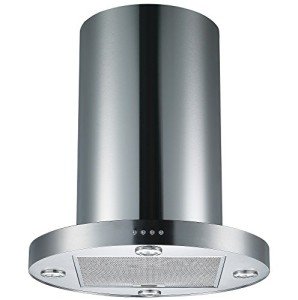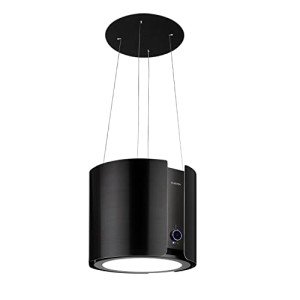
19
maioTen Things You Learned At Preschool That'll Help You With Island Hood
Island Hood: A Comprehensive Guide to Sheltering from the Storms
island extractor fan kitchen hoods, in some cases described as "island caps" or "island gazebos," are versatile and practical structures often placed in property gardens, public parks, or beachside areas. They serve the double function of providing shade throughout sunny days and shelter throughout unexpected climate condition. This post checks out the features, benefits, designs, and factors to consider for structure or buying an island hood, Island hood kitchen in addition to typical FAQs surrounding this necessary garden accessory.
Understanding Island Hoods
What is an Island Hood?
An island hood is a freestanding structure that frequently comprises a roofed canopy supported by posts or beams. Created as open-sided shelters, these hoods supply a welcoming space for relaxation, dining, or social events, allowing individuals to enjoy nature while being protected from the components.
Features of Island Hoods
Island hoods generally include a variety of functions, consisting of:
- Open design: Allowing for air flow and unblocked views.
- Long lasting products: Constructed from weather-resistant products such as wood, metal, or composite products.
- Adjustable options: Various designs (modern-day, conventional, tropical) and completes to match the aesthetic of the surrounding environment.
- Optional additions: Features such as built-in seating, lighting, or heating can enhance performance.
Advantages of Having an Island Hood
Welcoming the attraction of outside living, island hoods include several benefits:
- Protection from elements: Shield users from sun, rain, and wind.
- Improved outdoor experience: Provide a comfy and inviting area for outside home entertainment.
- Increased residential or commercial property value: A well-designed island hood can improve the appeal and value of a residential or commercial property.
- Adaptability: Suitable for different usages, from family events to small wedding events or peaceful retreats.
- Health advantages: Encourages a connection with nature, promoting a much healthier way of life.
Designing an Island Hood
When it pertains to designing or acquiring an island hood, several elements enter play. Below are crucial factors to consider.
1. Function and Use
Identify the primary function of your island hood. Will it be a family event spot, a quiet reading nook, or a space for amusing friends? Understanding its designated usage will help direct design choices.
2. Area
Choose an ideal place in your backyard or residential or commercial property. Ideally, it should be:

- Near existing amenities: Like a kitchen or dining location.
- Optimal sunshine direct exposure: Consider positioning it where it can supply shade at peak sun times.
- Landscaped: Integrate with existing plants for a cohesive look.
3. Size
Select a proper size based on the variety of individuals you anticipate to accommodate. Draft a simple floor plan and guarantee there suffices space for furniture, motion, and any extra functions you may want.
4. Products
Choose products that will endure local weather conditions. Alternatives consist of:
| Material | Pros | Cons |
|---|---|---|
| Wood | Natural look, customizable | Requires upkeep, susceptible to rot |
| Metal | Resilient, modern visual | Can be hot in sunlight, may rust |
| Composite | Low maintenance, weather-resistant | Can do not have the charm of natural materials |
5. Design
Choose a design style that matches your home's architecture. Styles can include:
- Traditional
- Contemporary
- Rustic
- Coastal
Structure Your Own Island Hood
For those inclined towards DIY jobs, constructing an island hood can be achievable with the best materials and tools. Here's a basic detailed process:
- Gather Materials: Wood, metal poles, nails/screws, roofing product (such as metal sheeting or roof tiles).
- Plan Your Design: Draw up a plan, making sure to include the precise measurements and structural supports as needed.
- Lay the Foundation: Use concrete to develop a stable base for the posts or assistances.
- Construct the Frame: Build the structural structure-- guaranteeing it is level and secure.
- Add the Roof: Attach the picked roofing material, guaranteeing it is water resistant and safely secured.
- Completing Touches: Consider including paint or stain, and any additional features such as seating.
Frequently Asked Questions About Island Hoods
Q1: How much does an island hood expense?

A: Costs can differ extensively based upon products, size, and design complexity. DIY alternatives may begin at a couple of hundred dollars, while expertly constructed hoods can range from ₤ 2,000 to ₤ 10,000 or more.
Q2: How do I preserve an island hood?
A: Maintenance depends upon the materials used. Wooden hoods require regular painting or sealing, metal may need rust avoidance, and composite typically simply needs cleaning.
Q3: Can I use an island hood year-round?
A: Yes, with the best design and materials, lots of island hob extractor hoods can be enjoyed throughout different seasons. Adding features like heating or windbreaks can enhance comfort.
Q4: Do I require an authorization to build an black island cooker hoods hood?
A: Regulations differ by place. It's a good idea to examine local zoning laws and structure codes to see if an authorization is needed for building and construction.
Island hoods are more than simple outdoor structures; they are gateways to boosting outside living experiences, providing security from the aspects while creating distinct areas for relaxation and social interaction. Whether property owners decide to develop their own or look for professional help, the benefits of having an island hood are clear. The thoughtful factor to consider of design, materials, and place can guarantee that these charming shelters serve both practical and visual functions for many years to come.
By integrating an island hood kitchen hood into outside living areas, individuals not only raise their residential or commercial property but also accept the happiness of nature, fostering connections with friends and family while enjoying their environments, rain or shine.


Reviews